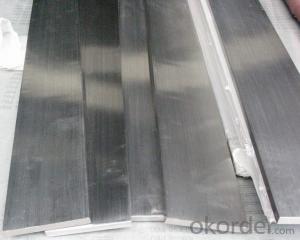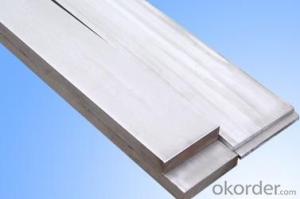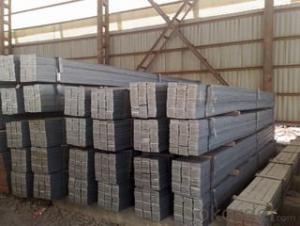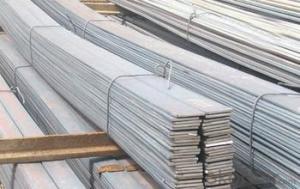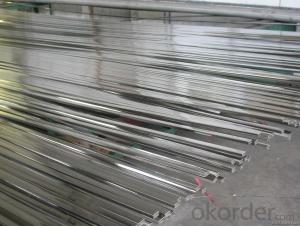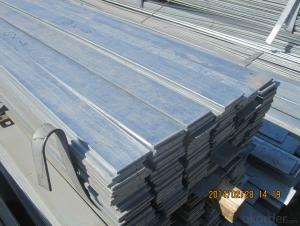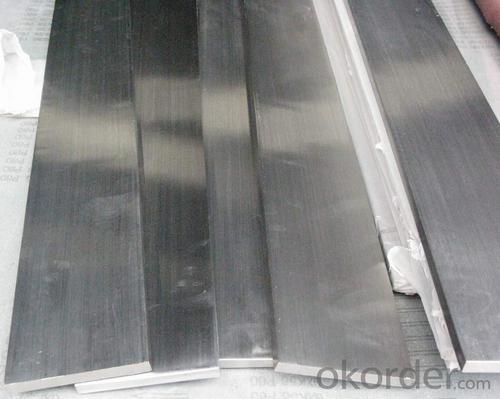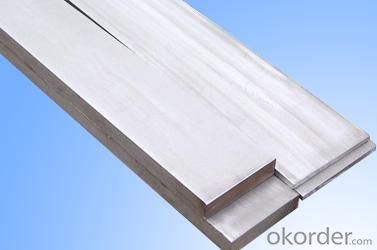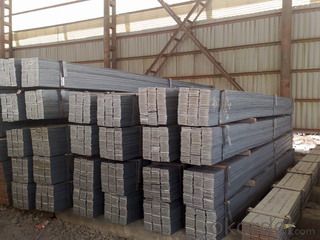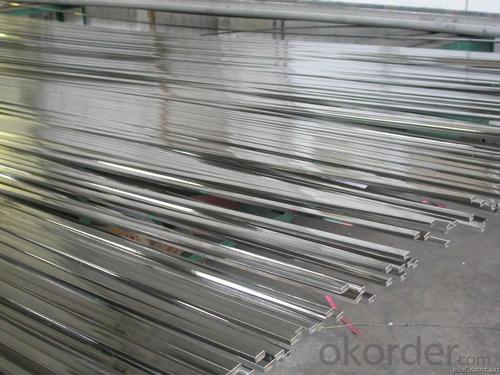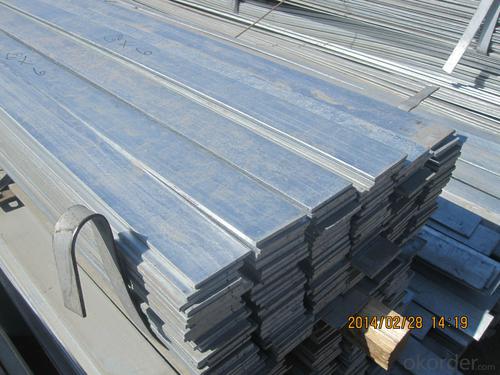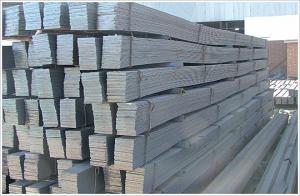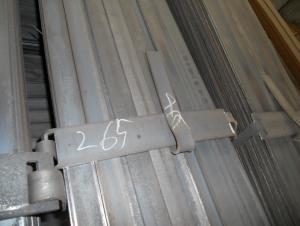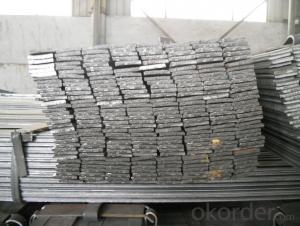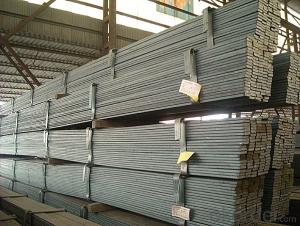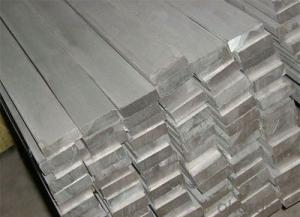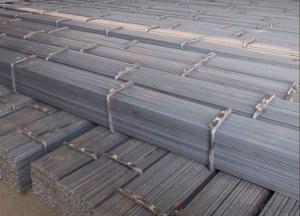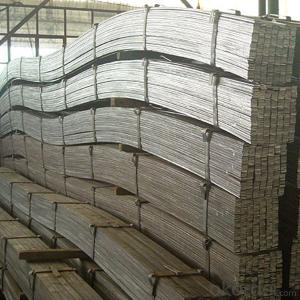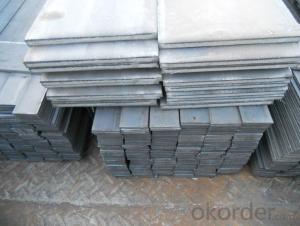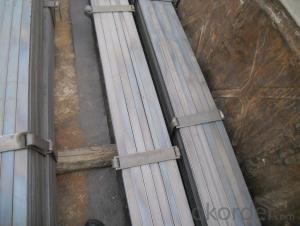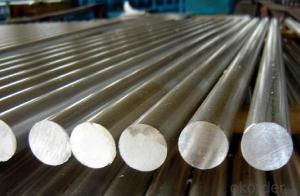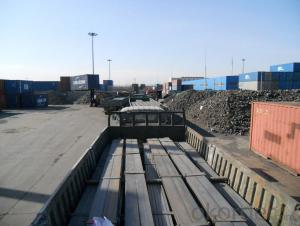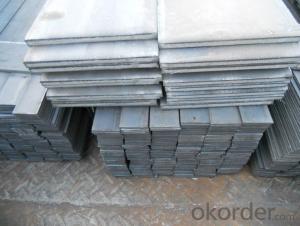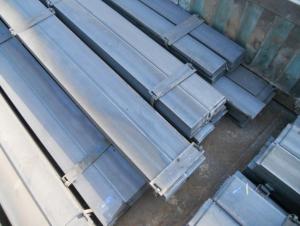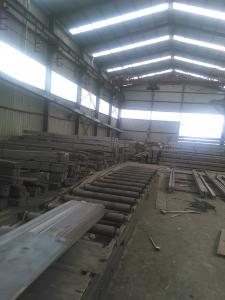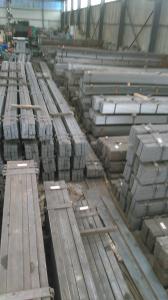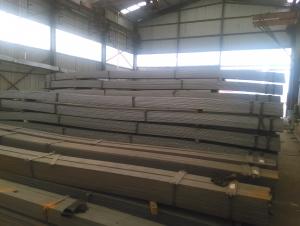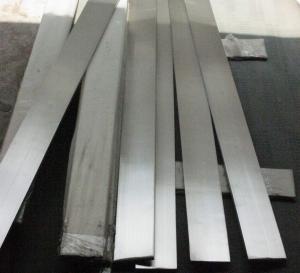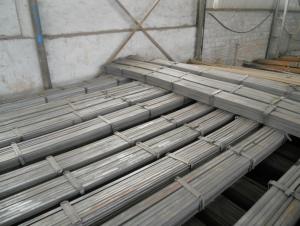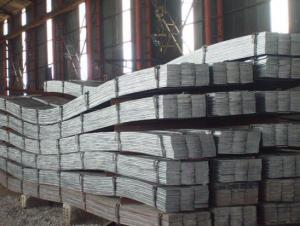Grade 304_304L Stainless Steel Flat Bar with High Quality
- Loading Port:
- Tianjin
- Payment Terms:
- TT OR LC
- Min Order Qty:
- 3 m.t.
- Supply Capability:
- 10000 m.t./month
OKorder Service Pledge
OKorder Financial Service
You Might Also Like
Grade 304_304L Stainless Steel Flat Bar with High Quality
Details of Grade 304_304L Stainless Steel Flat Bar with High Quality
Name | 200,300,400 series Stainless Steel Flat Bar |
Shape | Flat Bar |
Standard | GB/ASTM/SAE/AISI/DIN/JIS/EN/BS |
Surface Treatment: | Black/Peeling/Polished/Machined |
Delivery Condition: | Hot Rolled or Forged/Peeled or Black Surface |
Test | SGS/UT 100% Elements Testing |
Certificate: | ISO/Mill Certificate |
Service: | 24 hours online service / |
more than 20 years trading and manufacture | |
Quality Assurance: | the third party inspection, such as SGS, BV, TUV…etc. is acceptable |
Packaging Details: | Seaworthy Packaging or as per customer's packing instruction |
steel flat bar grade | 201/304/304L/309L/316/321 |
steel flat bar standard | GB, ASTM, AISI, EN, JIS |
steel flat bar thickness | 3mm-12mm |
steel flat bar width | 19mm-140mm |
steel flat bar length | 2m~6m or as customer requirement |
steel flat bar technique | Slitting hot rolled steel coil |
Chemical Composition of Grade 304_304L Stainless Steel Flat Bar with High Quality
Grade and Main chemical composition% | |||||||||
| C | Si | Mn | P≤ | S≤ | Cr | Mo | Ni | Other |
201 | ≤0.15 | ≤1.00 | 5.5-7.5 | 0.06 | 0.03 | 16-18 | - | 3.5-5.5 | N≤0.25 |
304 | ≤0.08 | ≤1.00 | ≤2.00 | 0.045 | 0.03 | 18-20 | - | 8-10.5 | - |
304L | ≤0.03 | ≤1.00 | ≤2.00 | 0.045 | 0.03 | 18-20 | - | 13-Sep | - |
309S | ≤0.08 | ≤1.00 | ≤2.00 | 0.045 | 0.03 | 22-24 | - | 15-Dec | - |
316 | ≤0.08 | ≤1.00 | ≤2.00 | 0.045 | 0.03 | 16-18 | 3-Feb | 14-Oct | - |
321 | ≤0.08 | ≤1.00 | ≤2.00 | 0.045 | 0.03 | 17-19 | - | 13-Sep | Ti≥5×C |
CNBM Introduction of Grade 304_304L Stainless Steel Flat Bar with High Quality
CNBM International Corporation is the most import and export platform of CNBM group(China National Building Material Group Corporation) ,which is a state-owned enterprise, ranked in 270th of Fortune Global 500 in 2015.
With its advantages, CNBM International are mainly concentrate on Cement, Glass, Iron and Steel, Ceramics industries and devotes herself for supplying high quality series of refractories as well as technical consultancies and logistics solution.
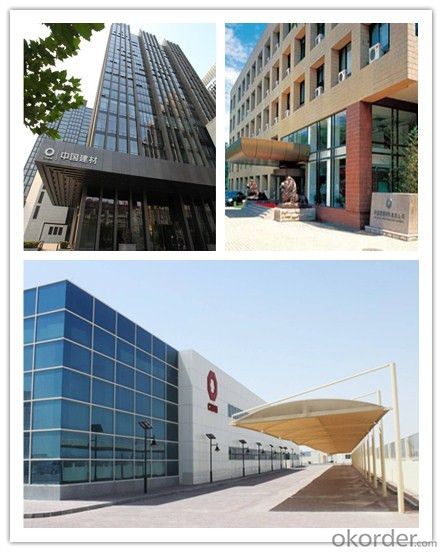
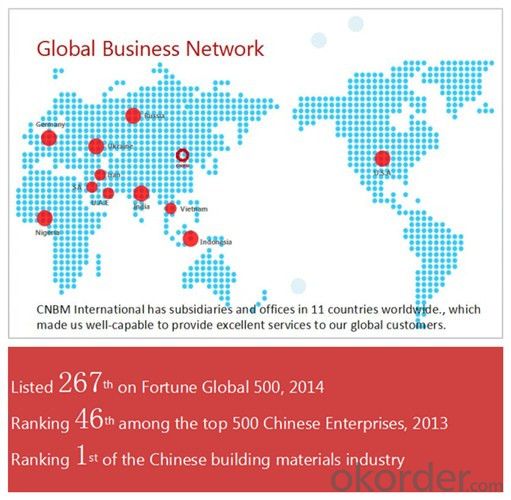
After-sale service |
|
Advantages
|
|
Packaging & Delivery of Grade 304_304L Stainless Steel Flat Bar with High Quality
Packaging Detail | Sea worthy packing /as per customer's packing instruction |
Delivery Detail | 15 ~ 40 days after receiving the deposit |
Products Show
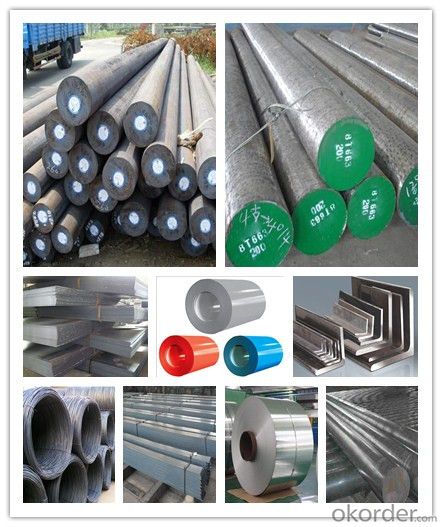
FAQ:
Are you a trading company or manufacturer? | Manufacturer |
What’s the MOQ? | 3 metric ton |
What’s your delivery time? | 15-35 days after downpayment received |
Do you Accept OEM service? | Yes |
what’s your delivery terms? | FOB/CFR/CIF |
What's the Payment Terms? | 30% as deposit,70% before shipment by T/T |
Western Union acceptable for small amount. | |
L/C acceptable for large amount. | |
Scrow ,Paybal,Alipay are also ok | |
Why choose us? | Chose happens because of quality, then price, We can give you both. Additionally, we can also offer professional products inquiry, products knowledge train (for agents), smooth goods delivery, excellent customer solution proposals. |
What's your available port of Shipment? | Main Port, China |
What’s your featured services? | Our service formula: good quality+ good price+ good service=customer's trust
|
Where are your Market? | Covering more than 160 countries in the world |
- Q: Can steel flat bars be used for making HVAC systems or components?
- Yes, steel flat bars can be used for making HVAC systems or components. Steel flat bars are commonly used in the construction industry due to their strength and durability. They can be used to fabricate various parts of HVAC systems such as ductwork, brackets, supports, and frames. The versatility of steel flat bars allows for customization and the ability to meet specific design requirements. Additionally, steel flat bars have excellent thermal conductivity, which is beneficial for HVAC systems as it helps in the efficient transfer of heat or cold air. Overall, steel flat bars are a suitable material choice for making HVAC systems or components.
- Q: How do steel flat bars contribute to the overall safety of educational structures?
- Steel flat bars contribute to the overall safety of educational structures by providing structural support and reinforcement. They are often used in the construction of beams, columns, and other load-bearing elements, ensuring the stability and integrity of the building. The high strength and durability of steel flat bars make them resistant to bending, breaking, and deformation, even under heavy loads or extreme conditions. Additionally, steel's fire-resistant properties enhance the fire safety of educational structures, reducing the risk of structural collapse and providing occupants with more time to evacuate.
- Q: How are steel flat bars manufactured?
- Steel flat bars are manufactured through a process called hot rolling, which involves heating a steel billet to high temperatures and passing it through a series of rollers to achieve the desired dimensions and shape. This process helps in improving the strength and durability of the steel flat bars.
- Q: Can steel flat bars be used in food processing applications?
- Yes, steel flat bars can be used in food processing applications. Steel is a common material choice in the food industry due to its durability, strength, and resistance to corrosion. Flat bars made of stainless steel are particularly suitable for food processing applications as they are non-reactive and do not leach any harmful substances into the food. Stainless steel flat bars are also easy to clean and maintain, making them a hygienic choice for food processing equipment and surfaces. Additionally, steel flat bars can be easily fabricated and shaped to meet the specific requirements of food processing applications, making them a versatile option in this industry.
- Q: What is the maximum length-to-thickness ratio for steel flat bars?
- The maximum length-to-thickness ratio for steel flat bars is typically around 200:1.
- Q: How do steel flat bars contribute to the overall sustainability of structures?
- Steel flat bars contribute to the overall sustainability of structures in several ways. Firstly, they are made from recycled materials, reducing the demand for new resources and minimizing the environmental impact of extraction and production. Additionally, steel flat bars offer high strength and durability, ensuring the longevity of structures and reducing the need for frequent replacements or repairs. Their versatility allows for efficient use in various applications, optimizing material utilization and minimizing waste. Furthermore, steel is highly recyclable, meaning that at the end of a structure's life cycle, the steel flat bars can be easily recycled and repurposed, reducing landfill waste. Overall, the use of steel flat bars in structures enhances sustainability through resource conservation, durability, and recyclability.
- Q: Can steel flat bars be used for making hand tools?
- Indeed, the utilization of steel flat bars is applicable in the creation of hand tools. These bars possess remarkable versatility and durability, rendering them well-suited for diverse applications, specifically in the manufacturing of hand tools. The steel employed in the construction of flat bars typically boasts exceptional strength and resistance to deterioration, making it an ideal material for tools demanding robustness and longevity. Moreover, the malleability and manipulability of steel flat bars enable them to be effortlessly shaped and crafted into various tool designs, thereby facilitating customization and flexibility in the manufacturing process. Consequently, the effective incorporation of steel flat bars in hand tool production guarantees both their longevity and functionality.
- Q: What are the different grades of steel used in flat bars?
- Flat bars commonly use several grades of steel, each with unique properties and applications. Some of the most frequently used grades are: 1. Mild Steel (or low carbon steel): This grade is widely utilized in flat bars due to its low carbon content, making it easy to work with and weldable. It finds applications in construction, automotive, and general fabrication. 2. Carbon Steel: With a higher carbon content (usually ranging from 0.30% to 2.0%), carbon steel offers increased strength and hardness compared to mild steel. It is suitable for applications requiring higher load-bearing capabilities, such as machinery parts and structural components. 3. Alloy Steel: This type of steel contains additional elements like manganese, silicon, nickel, chromium, or molybdenum, which enhance mechanical properties such as strength, hardness, and corrosion resistance. Alloy steel flat bars are commonly used in manufacturing tools, gears, and machine parts. 4. Stainless Steel: Stainless steel is corrosion-resistant and contains a minimum of 10.5% chromium. It excels in environments prone to rust, staining, and corrosion, making it ideal for applications in food processing, pharmaceuticals, and marine industries. Stainless steel flat bars come in various grades, with 304 and 316 being the most common. 5. Tool Steel: Designed to exhibit exceptional hardness, toughness, and wear resistance, tool steel is specialized for manufacturing cutting tools, molds, and dies. Tool steel flat bars are available in grades like A2, D2, and O1, each offering specific properties for different applications. These examples represent only a few of the many specialized grades available for flat bars, including heat-resistant steel, wear-resistant steel, and high-strength steel. The choice of grade depends on specific application requirements, such as strength, corrosion resistance, hardness, and other properties.
- Q: What are the different international standards for steel flat bars?
- There are various international standards for steel flat bars, including ASTM A36/A36M, EN 10025-2, JIS G3101, and GB/T 700-2006. These standards specify the chemical composition, mechanical properties, and dimensional tolerances for steel flat bars, ensuring consistency and quality in their production and use across different countries and industries.
- Q: What is the difference between carbon steel and stainless steel flat bars?
- Carbon steel and stainless steel flat bars differ primarily in their composition and properties. Carbon steel flat bars are primarily made of iron and carbon, with small amounts of other elements such as manganese and copper. They are known for their strength and durability but are susceptible to corrosion. Stainless steel flat bars, on the other hand, are made of iron, carbon, and a high percentage of chromium, which gives them excellent corrosion resistance. They also often contain other elements such as nickel or molybdenum, which further enhance their resistance to rust and staining. Stainless steel flat bars are typically more expensive than carbon steel flat bars but offer superior durability and resistance to corrosion.
Send your message to us
Grade 304_304L Stainless Steel Flat Bar with High Quality
- Loading Port:
- Tianjin
- Payment Terms:
- TT OR LC
- Min Order Qty:
- 3 m.t.
- Supply Capability:
- 10000 m.t./month
OKorder Service Pledge
OKorder Financial Service
Similar products
Hot products
Hot Searches
Related keywords
